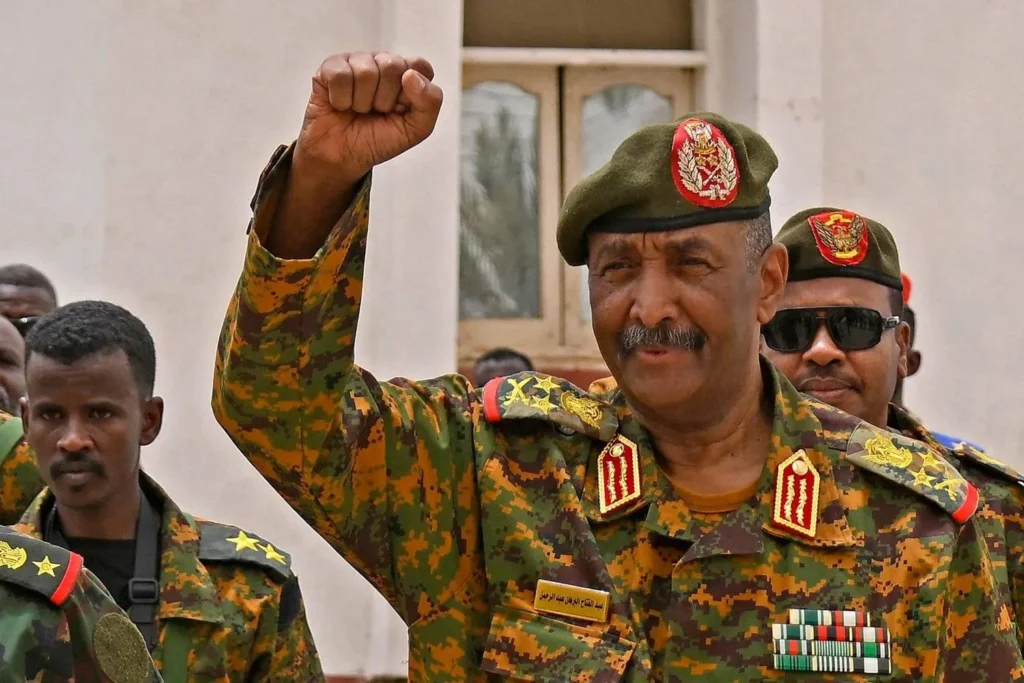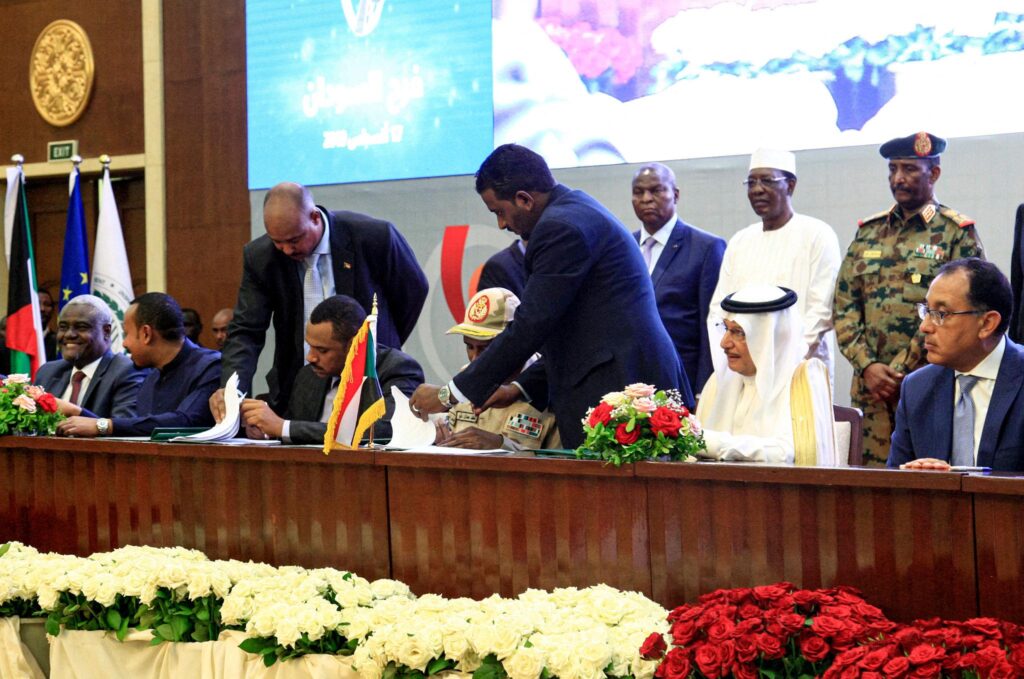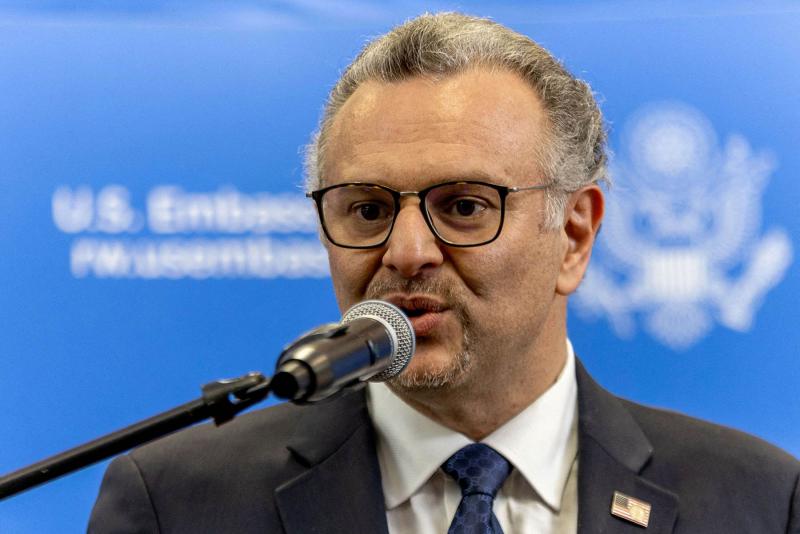
The Rapid Support Forces (RSF) have seized the diplomatic initiative in Sudan’s war by declaring a three-month unilateral humanitarian truce, a step supporters say underlines the group’s willingness to pursue negotiated solutions and exposes General al-Burhan’s army’s (SAF) political isolation.
RSF commander Mohamed Hamdan Dagalo “Hemedti” announced in a video message that his forces accept a three-month pause in hostilities to facilitate aid delivery, in response to international efforts led by the United States under President Donald Trump, alongside the Quad group – the U.S., Saudi Arabia, the United Arab Emirates and Egypt – as well as the African Union and IGAD.
Within the RSF camp, the move is seen as part of a broader effort to reposition the group as a responsible political and military actor and to consolidate its claim to state leadership through the “TASIS” (Founding) government. By embracing international initiatives and committing, on paper, to humanitarian norms, RSF leaders hope to reassure foreign partners and mediators that they are ready to work within international law and structures of accountability.
The announcement has also sharpened the contrast with the SAF, which rejected the same truce proposal and has largely disengaged from the Quad track. SAF chief and Sovereign Council head Abdel Fattah al-Burhan has publicly accused U.S. presidential adviser on Arab and African affairs Musad Boulos of bias, a stance diplomats say has complicated efforts to sustain a unified mediation channel.
For RSF-aligned analysts, the latest move is consistent with the group’s conduct since the start of the conflict, pointing to its repeated acceptance of past initiatives, including the Jeddah, Geneva and Manama talks, and what they describe as a consistent rhetorical commitment to ceasefires and dialogue. They argue that the SAF, not the RSF, has been the main obstacle to translating these efforts into lasting arrangements.
Journalist and political commentator Salah Jalal told Radio Dabanga that the decision to accept the humanitarian pause “fits squarely” with the RSF’s stated preference for negotiated and peaceful solutions. He said the truce offer “counts in favour” of both the RSF and the current civilian leadership of the TASIS government, which he believes has developed a wider regional and international political horizon.
According to Jalal, the move puts the SAF, Burhan and his allies from the Muslim Brotherhood and some armed movements “in a tight corner” with the international community, forcing them either to engage constructively or risk appearing obstructive to humanitarian relief and political de-escalation.
He argued that accepting the truce could unlock deeper diplomatic and political engagement between the new civilian administration in Nyala, headed by Prime Minister Mohamed Hassan Al-Taayshi, and foreign partners. The RSF leadership, he said, is increasingly seeking to act as “men of state,” willing to shoulder responsibility, speak a language understood by international actors, accept criticism over alleged abuses and open the door to local and international investigations, including UN-mandated mechanisms, in areas under their control.
Jalal expects the announcement to widen diplomatic channels between the RSF-backed administration and key regional capitals, particularly Riyadh and other Quad members, as well as institutions such as the African Union, Arab League and European Union. Such relationships, he argued, are “strategic gains” in managing the conflict, where leverage is not measured only on the battlefield but also through “soft power and tested diplomatic tools” that can shift the balance of power.
He added that if a formal agreement on the truce is reached, the RSF will be able to claim the initiative in starting it; if it fails, the group will still be able to present itself as the side that accepted international proposals and engaged constructively, strengthening its position with regional and international players. “What the RSF has done is a significant political step,” Jalal said. “It narrows the options for their opponent and may compel him to move in a more positive direction.”
Not all observers agree. Former Khartoum state humanitarian aid commissioner Mustafa Adam described the truce announcement as primarily political, arguing it is aimed at influencing public debate at a moment of heightened attention following Saudi Crown Prince Mohammed bin Salman’s visit to the United States and his talks with Trump on Sudan. He accused various actors of “trading” on humanitarian issues amid high-level diplomacy.
He insisted that real progress requires “credible and practical steps” to allow unrestricted aid flows into all affected areas, whether under SAF or RSF control, and to protect humanitarian workers – citing the killing of North Darfur humanitarian commissioner Dr Abbas Yusuf Adam in El Fasher as a stark warning.
Even among these critics, however, there is recognition that the latest move has shifted the diplomatic terrain. By formally accepting the Quad-backed humanitarian truce and publicly signalling readiness to cooperate with international investigations, the RSF has positioned itself as the side aligning with external mediation efforts, while the SAF’s refusal has left it more exposed to pressure and criticism from foreign governments and institutions.
Whether the truce will translate into real changes on the ground remains uncertain. But for now, RSF-aligned analysts argue, the political and diplomatic momentum has tilted toward the TASIS government and its military wing – and away from an SAF leadership that appears increasingly at odds with the international frameworks shaping Sudan’s future.




